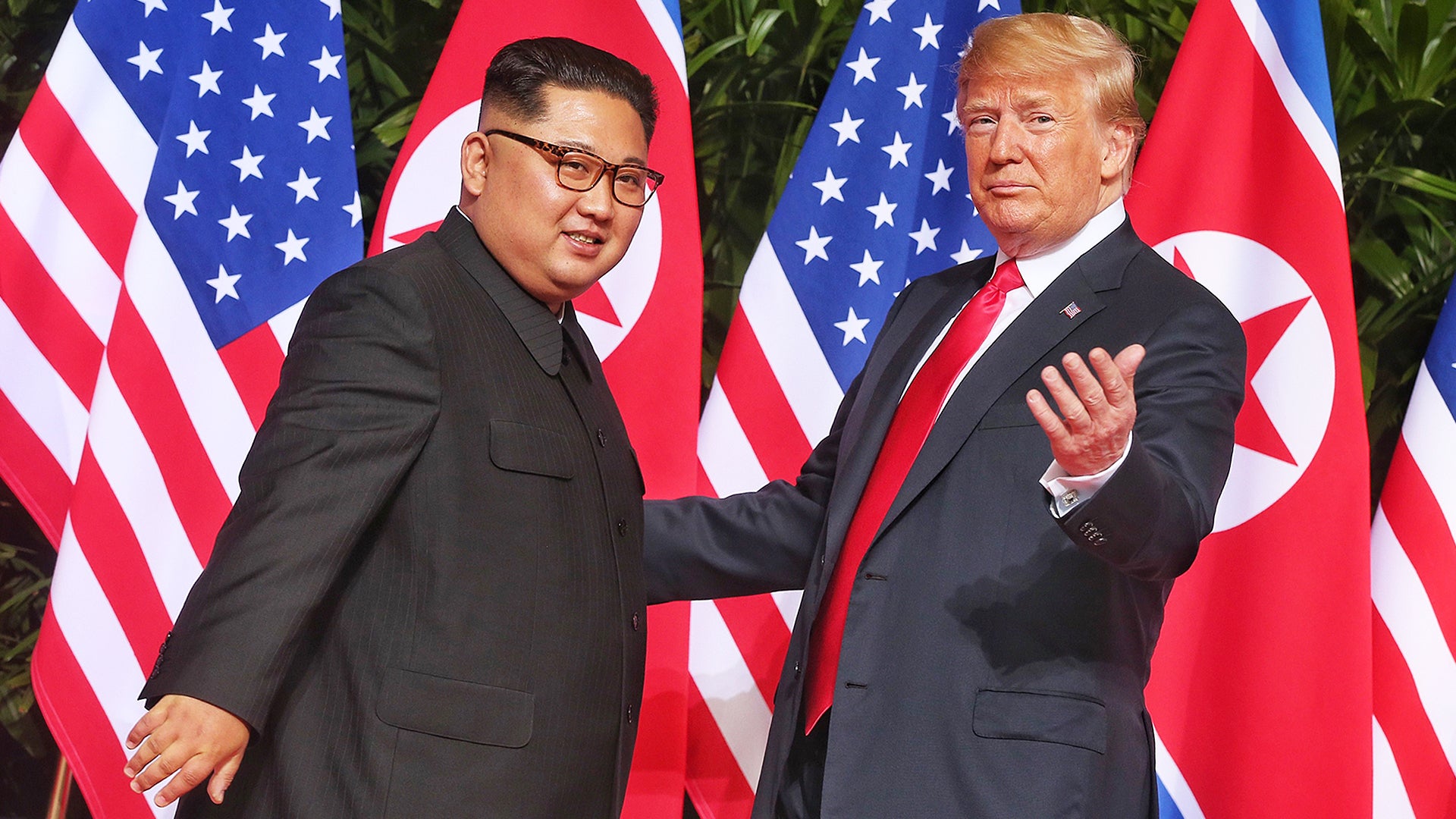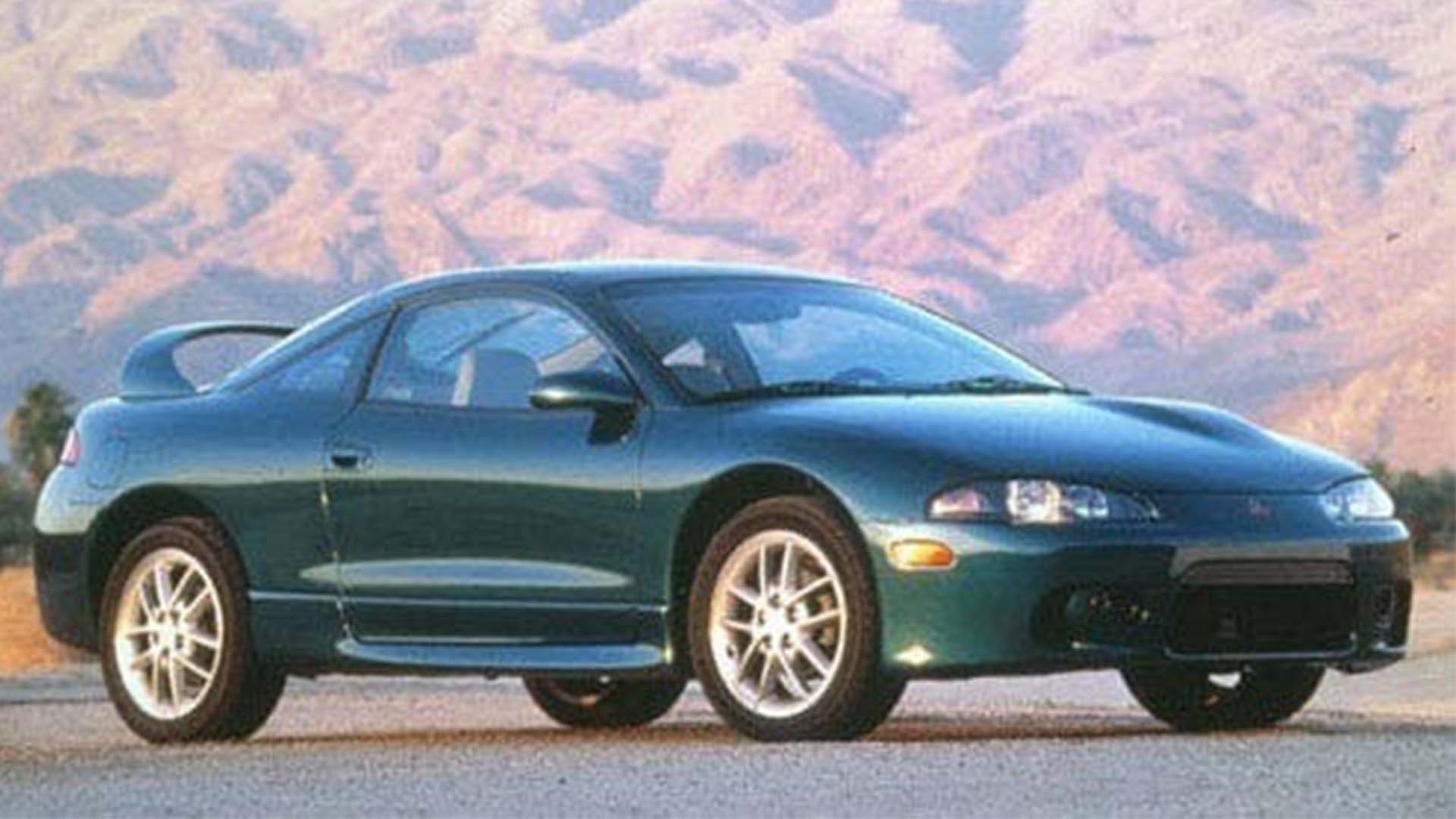It has been an exciting few days, to say the least, but the historic summit between North Korea and the United States has officially come and gone. With all the imagery and intrigue surrounding the event, it's now time to evaluate how it all went, including what each party gave and received as part of the top-level diplomatic exchange. What's abundantly clear is that Trump's grand nuclear 'deal' with North Korea remains a figment of his imagination.
The Joint Statement
For all that pomp and ceremony, and the once-in-a-lifetime spectacle of a sitting U.S. president meeting with a North Korean leader for the first time ever, the resulting four-point joint statement was vague and extremely limited. It was, in large part, indistinguishable from shared communiqués the two countries put out after meetings in the past.
The entire text, which you can read below, is less than 500 words long.
In this latest missive, Trump and Kim agreed to improve relations to advance "peace and prosperity," promote peace on the Korean Peninsula, reaffirm the plan "to work toward complete denuclearization of the Korean Peninsula" that North and South Korea agreed to at the summit in Panmunjom in April 2018, and work to recover and repatriate remains of military personnel who were killed in action or died as prisoners of war during the Korean War. With the exception of the last point, the basic tenets espoused here are effectively the same as the ones contained in a 1993 joint statement after a meeting between then-U.S. Assistant Secretary of State Robert Gallucci and then-North Korean First Vice Minister for Foreign Affairs Kang Sok Ju.
Notably, Trump and Kim's newest statement does not include any specific definition of "a lasting and stable peace regime" or "denuclearization." As we at The War Zone and many others have repeatedly noted, in particular, the United States and North Korea have wildly different understandings of what denuclearization means both in the near and long terms. There is also no fixed timeline for defining, let alone implementing these plans.
The definition of denuclearization has been and is likely to continue to be a major sticking point in any U.S.-North Korea negotiations in the future. The North Koreans have, for decades, understood this to mean the elimination of the prospect of nuclear conflict on the Peninsula, which would entail the withdrawal of the United States from the region and an end to protecting South Korea with its nuclear umbrella.
Despite what Trump continues to insist and how senior administration officials, such as Secretary of State Mike Pompeo, have framed it in the past, this pledge in the joint statement does not reflect any change in North Korean policy or any real intent to commit to what has been referred to as "complete, verifiable, and irreversible dismantlement" of the country's nuclear arsenal. This declaration is essentially meaningless and definitely does not reflect the Trump Administration's past promises, even in the days leading up to the summit, about what Kim was willing to concede to in Singapore or its demand that North Korea abandon its nuclear weapons as a virtual precondition to talks.
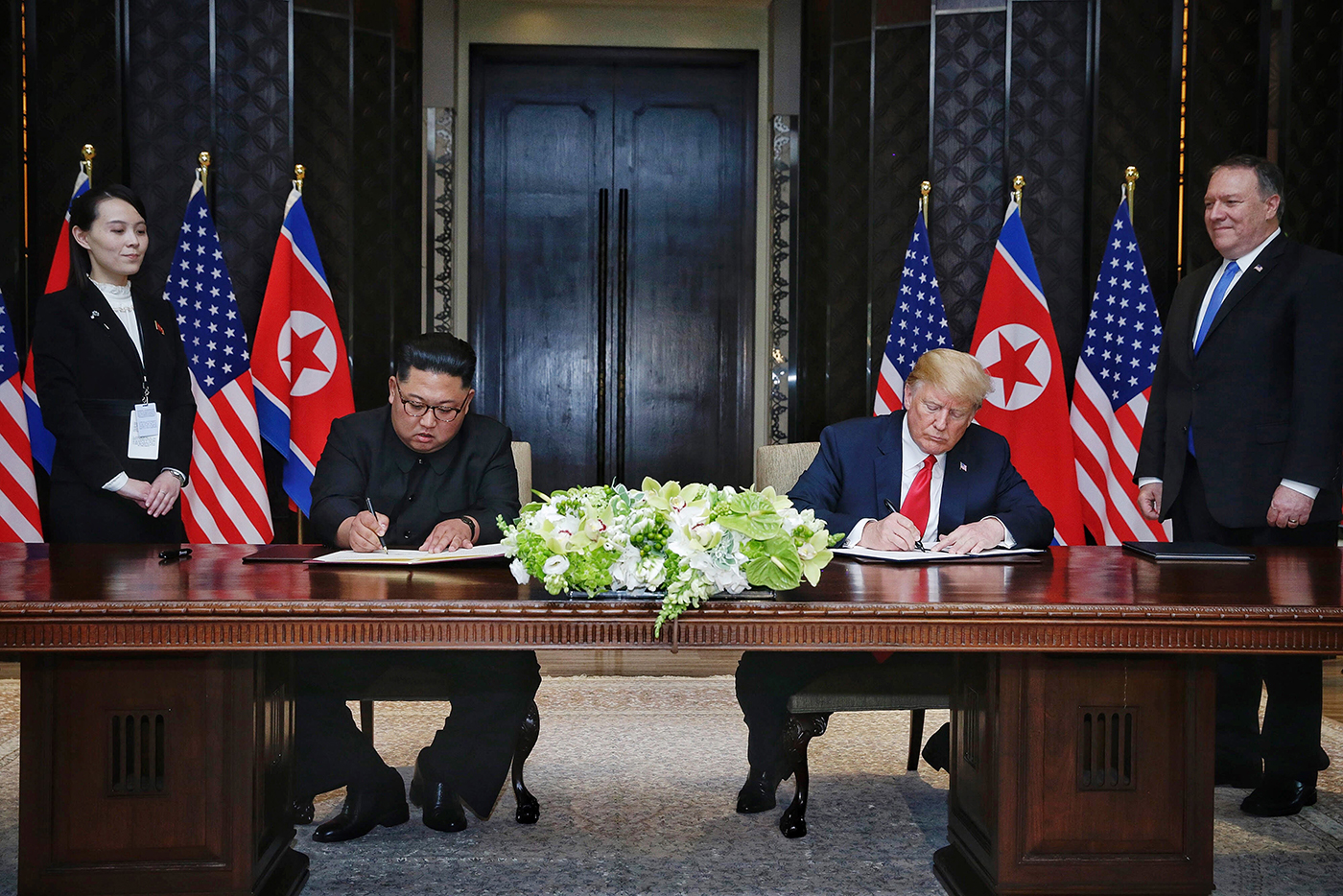
"You’re talking about a very complex subject," Trump said during the press conference after the summit, echoing a change in tone on the issue that's been building for weeks. "It’s not just like, 'Oh, gee. Let’s get rid of the nukes.' It takes a period of time."
That being said, the new commitment to recover and repatriate war dead is a significant development and one that has many advocates in the United States. In the run up to the Singapore summit, the Veterans of Foreign Wars (VFW) sent a letter to Trump urging him to find a way to jumpstart the process, which has been stalled since 2005. The remains of as many as 5,300 American troops may still be in North Korea.
"For the families of those who never returned, the passage of time does not heal their wounds," the VFW's letter stated. "For them, the days became weeks, and the weeks became months, then years, and now, sadly, decades."
Beyond just offering closure to the families, the search for the remains of American personnel has proven to be a valuable diplomatic tool that is useful for establishing government-to-government contacts and building a certain rapport based on acknowledging the shared magnitude of a conflict. U.S. government engagement with Vietnam on this front contributed significantly to the normalization of relations between the two countries.
It is equally important to note that the joint statement makes no reference whatsoever to Kim's chemical and biological weapons, ballistic missile and space launch vehicle development efforts, cyber attacks, smuggling and other illicit activities, support for international terrorists, domestic human rights abuses, the effective murder of American citizen Otto Warmbier in a North Korean prison, the repeated abduction of South Korean and Japanese citizens, unprovoked attacks on South Korean military forces and civilians, or any of a slew of other serious issues the United States, as well as its allies, holds the regime in Pyongyang responsible for. This is especially notable given Trump's recent withdrawal from the controversial deal with Iran over its nuclear program, which occurred in no small part because of the Trump Administration's objections to the narrow focus of that agreement.
The Aftermath
But whether or not the joint statement is any sort of real and positive step forward, Trump's statements to the media afterward have been unscripted debacles that have often bizarrely traded American interests and ideals for North Korean talking points. Most importantly, he said he had offered to halt long-standing military exercises with South Korea, though he gave no details about what particular drills would stop and when.
"We will be stopping the war games, which will save us a tremendous amount of money, unless and until we see the future negotiation is not going along like it should," Trump said at a press conference in Singapore after the summit wrapped up on June 12, 2018. "Plus, I think it’s very provocative."
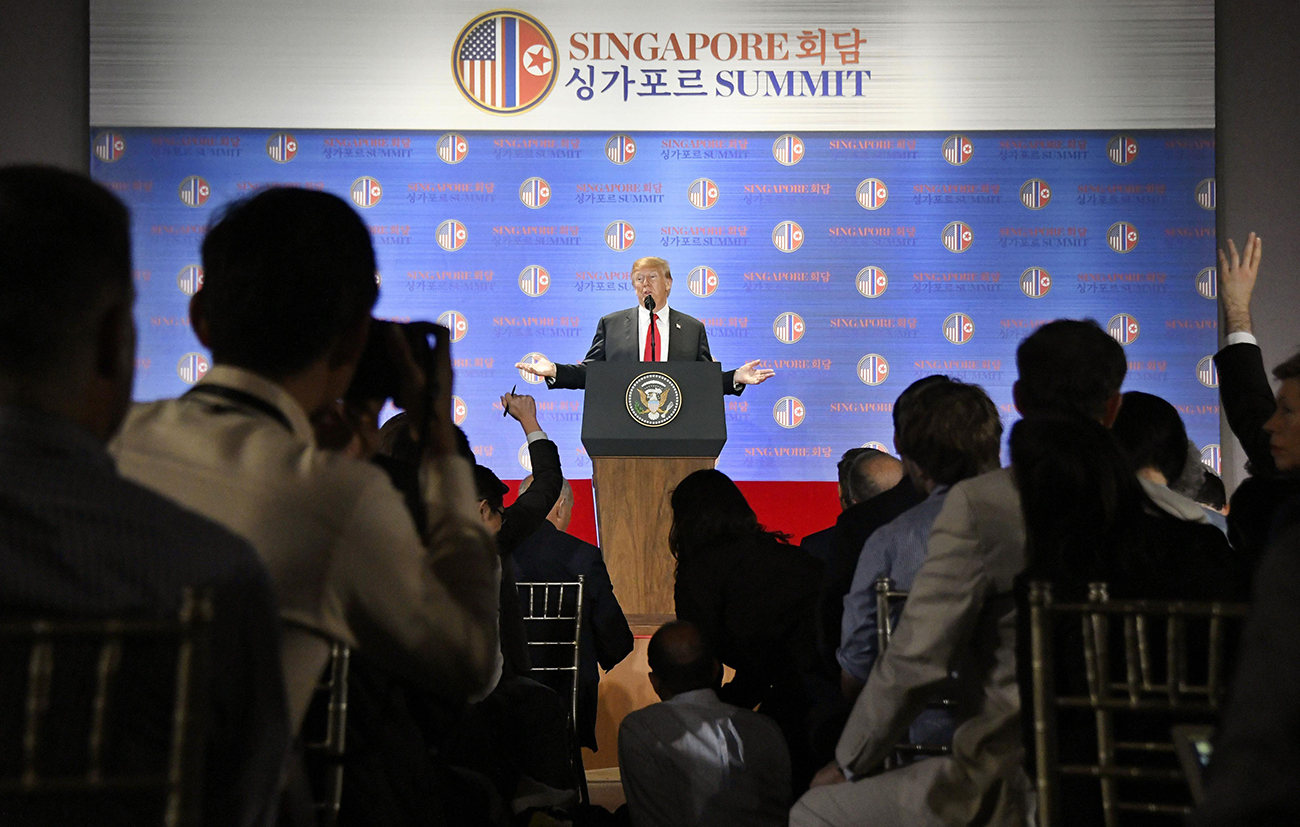
Trump repeated those comments multiple times during the presser. At one point singling out bomber flights from Guam to the Korean Peninsula specifically as both "expensive" and "provocative."
"I know a lot about airplanes; it’s very expensive," Trump said. "And I didn’t like it."
It's fair to say that whether Trump has a working understanding of military aircraft is up for debate. Regardless, the use of the word "provocative" is at the very least odd, as this is exactly how North Korea's massive propaganda machine frames shared U.S.-South Korean military exercises.
And while "war games" may be an accurate colloquial way of describing the various annual and other drills in South Korea, as an official statement from the U.S. government it tactically legitimizes North Korea's claim that these events are simply dry runs for an invasion. The U.S. military repeatedly denies that the exercises are anything but defensive in nature, serving to enhance readiness and as shows of force to deter North Korean aggression.
On top of that, sending bombers near North Korea had become a major point of contention in 2017, with Kim's regime at one point threatening to shoot them down. In effect, Trump admitted there was little substance to his fiery rhetoric in the past and has potentially opened the United States up to challenges elsewhere over "provocative" military maneuvers. The Russians and the Chinese both routinely complain about American drills and other military activities in Europe and the Pacific Region respectively.
And to make matters worse, it appears that Trump's concessions on this point came without any significant coordination with either South Korea or his own Department of Defense. Both the office of South Korea's President Moon Jae In – referred to as Blue House – and that country's Ministry of Defense said they were seeking clarification about the "meaning and intention" and Trump's remarks. U.S. Forces Korea, the top American military command on the Peninsula, said it had received no orders or other guidance to change its plans or posture.
Trump has in the past complained about how much it costs to maintain the U.S. military presence in South Korea and demanded the government in Seoul contribute more to support this arrangement. During the press conference, he reiterated those points, as well as his ultimate desire to withdraw all American troops from the Peninsula, directly contradicting statements from Secretary of Defense James Mattis.
"It's [troop withdrawal] not even a subject of the discussions," Mattis said on June 11, 2018, according to CNN's Barbara Starr. "You know, obviously there are there because of security conditions 10 years ago, five years ago, this year."
The end of large-scale military exercises, and especially the removal of U.S. forces from the Koran Peninsula is a long-standing goal not just of North Korea but also China.
Trump countered the immediate questions about whether he was giving up the exercises without getting anything in exchange by pointing to a lack of ballistic missile and nuclear tests. In a Tweet ahead of the summit he had also suggested that North Korea had halted research and development activity in these areas.
There are few if any robust indications that the North Koreans have stopped working on developing and expanding their nuclear arsenal and available delivery systems. By Trump's Pentagon's own assessment, Kim continues to see these weapons as the guarantors of his regime's survival and the summit can only reinforce the view that they have catapulted him onto the world stage as a virtual equal of the United States.
In addition, there is no clear evidence that North Korea's demolitions at the Punggye-ri nuclear test site or the dismantlement of certain other facilities will have any meaningful or permanent impact on the country's advanced weapons programs. Whether or not Punggye-ri remained a viable test site or is now irrevocably closed, the North Koreans likely have the data they need to be relatively confident in their nuclear warhead designs and to support further experimentation through modeling and simulation.
Trump specifically claimed credit for having secured the closure of an additional "engine test site" during the course of his negotiations, but experts remain unclear about what he was referring to. Earlier in June 2018, the North Korea-focused open-source intelligence site 38 North reported that the country appeared to be dismantling a missile test stand near Kusong, but this is not an engine test facility.
But the president seemed to be sure of what he meant in this regard, saying "We know where it is because of the heat." This appears to be an indirect reference to the Space-Based Infrared System (SBIRS) satellite constellation, which serves primarily as an early warning system to detect hostile ballistic missile launches. However, it is sensitive enough to detect other significant heat signatures and the test of a ballistic missile's rocket motor would certainly be large enough for them to spot.
If Trump was referring to the site in Kusong, then either he is either lying about having negotiated that concession during the summit or the North Koreans led him to believe it was a new offer when the dismantlement was already underway. It is also possible that the president was referring to another location that North Korea will demolish sometime in the near future.
The American president also pointed to his Administration's sanctions regime and the release of three Americans that North Korea had held prisoner in May 2018 as additional evidence of valuable concessions in return. North Korea has long been under sanctions and while Trump has overseen a significant expansion in these economic restrictions, it has been difficult to gauge how much of an impact they have had on the regime in Pyongyang.
In addition, China has already called for the easing of sanctions in light of the summit as a goodwill gesture. Chinese nationals and companies are among those the United States accuses of being either actively complicit in or otherwise unwilling to stop North Korea skirting existing restrictions and international embargoes
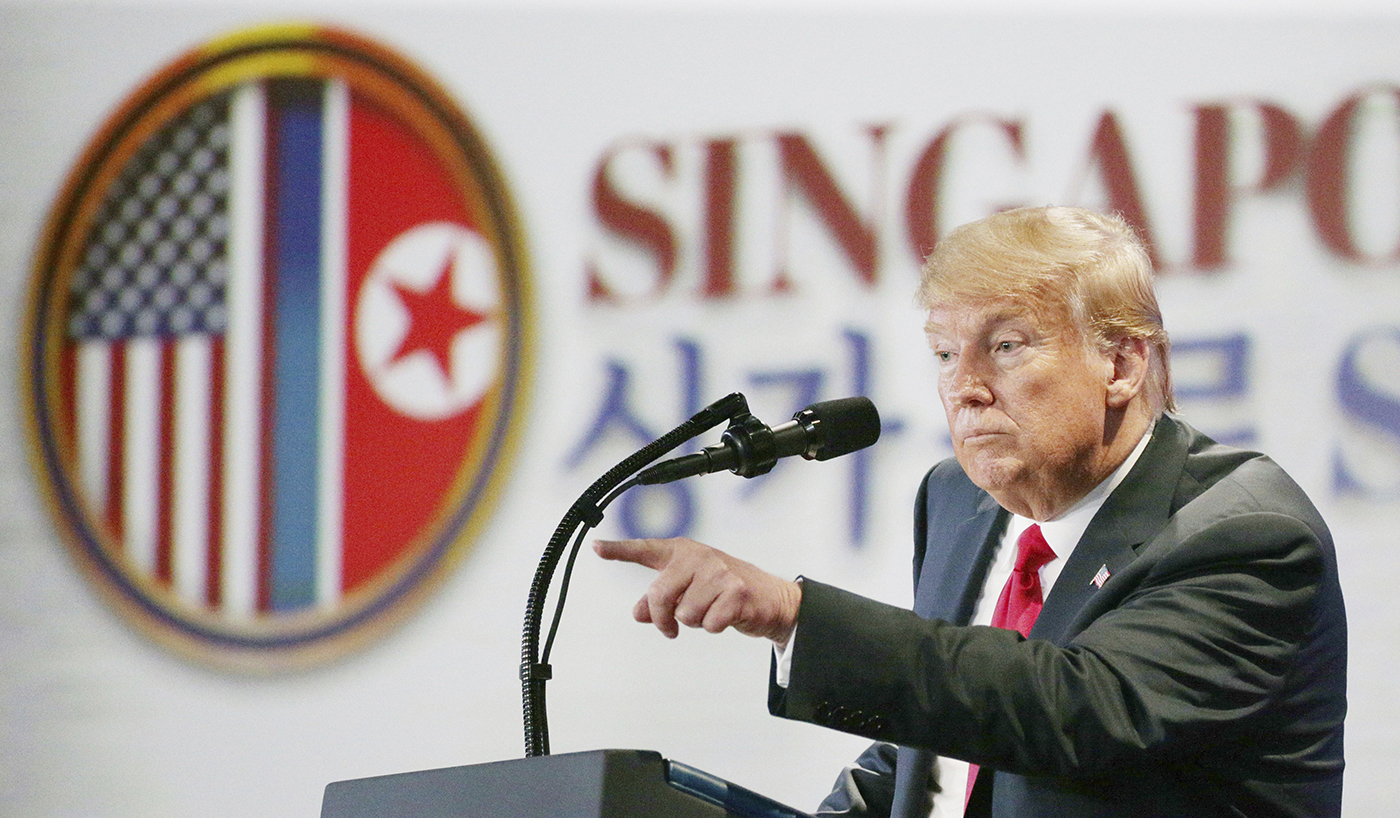
With respect to prisoner releases, Trump did not mention that the North Koreans had arrested two of those individuals during the first year of his presidency. President Barack Obama also helped secure the liberty of four Americans from the Hermit Kingdom during his tenure without agreeing to meet with Kim or his now deceased father Kim Jong Il.
Beyond all this, Trump has also been full of effusive praise for the young dictator that is sure to rankle Americans and their allies, both in East Asia and elsewhere. The president commended Kim on being able to take charge of North Korea at 26 and "run it tough," and described him as "talented," "very smart," and a "worthy negotiator," all while insisting that this was not somehow giving tacit approval to the regime's notoriously brutal, systematic suppression of internal dissent, the scope of which has rarely been seen in modern history.
Trump doubled down on his positive assessment of Kim in subsequent one-on-one interviews. When pressed by ABC's George Stephanopoulos on how he could say these things or even trust the head of a totalitarian police state, the president simply said "I’m given what I'm given, okay?"
This was a dramatic shift in tone from Trump's open threats of "fire and fury" in 2017 and was a theme that ran through other parts of his post-summit press conference. Instead of bringing up the size of America's nuclear arsenal or otherwise bragging about U.S. military's capabilities, the president highlighted how devastating a war on the Korean Peninsula would be for all parties involved – something almost every reasonable observer of the situation has pointed out for months.
"This is really an honor for me to be doing this because I think, you know, potentially, you could have lost, you know, 30-, 40-, 50 million people," Trump said. "The city of Seoul, one of the biggest cities in the world, is right next to the border."
The Trump administration even went so far as to commission a bizarre video presentation, which you can watch below, about what could happen if the United States and North Korea improved their relationship that seemed to frame the president and Kim as possible personal friends. This is something Trump has suggested could be the case in the past and repeated shortly before, during, and after the summit. What makes the clip even more curious is that the company the White House credited with producing it says it was not involved at all.
Now, it's fair to say that this is hardly the first time the U.S. government has failed to apply a uniform standard when dealing with world leaders responsible for heinous atrocities. It does, however, come shortly after Trump and his Administration lambasted some of its closest allies during and after a meeting of the leaders of the so-called Group of Seven, or G7.
On June 10, 2018, White House economic adviser Larry Kudlow said Canadian Prime Minister Justin Trudeau had "stabbed us in the back" over trade issues. That same day, White House trade adviser Peter Navarro declared there was a "special place in hell" for Trudeau over his public criticisms of Trump's economic policies. Navarro has since apologized for his comments, but does not appear to be in danger of losing his job. Kudlow is recovering from a heart attack he suffered on June 11, 2018.
And for all of the comments about how historic the summit was and the concessions Trump claimed he was able to wrestle from Kim, the president has seemed relatively flippant about the whole matter. When asked about how he could hold Kim accountable for the things he said during the summit if there was no audio recording or formal transcript, he dismissed the matter out of hand.
"Well, I don’t have to verify because I have one of the great memories of all time," Trump declared. "So I don’t have to. Okay? Okay?"
And even immediately after signing the statement, he conceded that it was too soon to tell if the meeting had achieved anything meaningful. Trump then added an absurd, yet surprisingly honest and self-aware statement about what the future might hold.
"I think he’s — I think — honestly, I think he’s going to do these things. I may be wrong," Trump told reporters at the post-statement signing press conference. "I mean, I may stand before you in six months and say, 'Hey, I was wrong.' I don’t know that I’ll ever admit that, but I’ll find some kind of an excuse."
The press corps laughed at this last remark. But it's really no laughing matter.
As for why Trump wanted to leave early instead of trying to push for and hammer out a more detailed or innovative agreement, he told reporters on Air Force One that he'd "rather fly during the night and get back tonight" and "there was nothing more we could've done. We had the agreement done."
This is yet another sign that the North Koreans made it clear early on in the summit that nothing ground-breaking was going to come as a result of it, and apparently the White House capitulated.
Reality Bites
Some will say 'hey, it's a start,' but even that statement is reaching. The North Koreans have only agreed to say the same old thing they have said for decades. Aside from the recovery of American remains, which is a positive but separate win for Trump, nothing tangible has been gained here, let alone any sort of talk or even a roadmap to complete, verifiable, and irreversible dismantlement of North Korea's nuclear program.
Trump says that some sort of a personal relationship between him and Kim will result in success later on—let's all hope so—but the odds of that actually happening seem extremely small. The same deep rifts on policy remain between the two foes that existed before the summit and, since virtually no progress was made at this grand diplomatic exchange, one in which both parties had so much invested image-wise, it's hard to imagine that will change now that negotiations will be going back to diplomats sitting at tables for hours on end, with no cameras on hand providing propaganda dividends.
Also, how will this relationship survive if North Korea doesn't actually act quickly to denuclearize? Hanging out with the dictator of North Korea just for the sake of doing so even as he continues on with business as usual seems pretty odd and counterproductive.
But even if great change comes to North Korea, the reality is that the potential for this landmark summit – a historic "first" that is now impossible to repeat – was largely squandered due to poor procedural choices and a lack of diplomatic creativity, vision, and gamesmanship on the part of the United States.
No one has been more vocal about the need to meet with the North Koreans than us, and we have repeatedly applauded Trump's willingness to do so. But when it comes to process, there were a number of very strange and critical preliminary decisions—or concessions—made on the part of the United States. These seemed to be especially damaging and odd considering Trump's self-proclaimed mastery of negotiation skills and the fact that he appeared to be fine walking away from the summit in a major power play just a couple weeks prior to its start date.
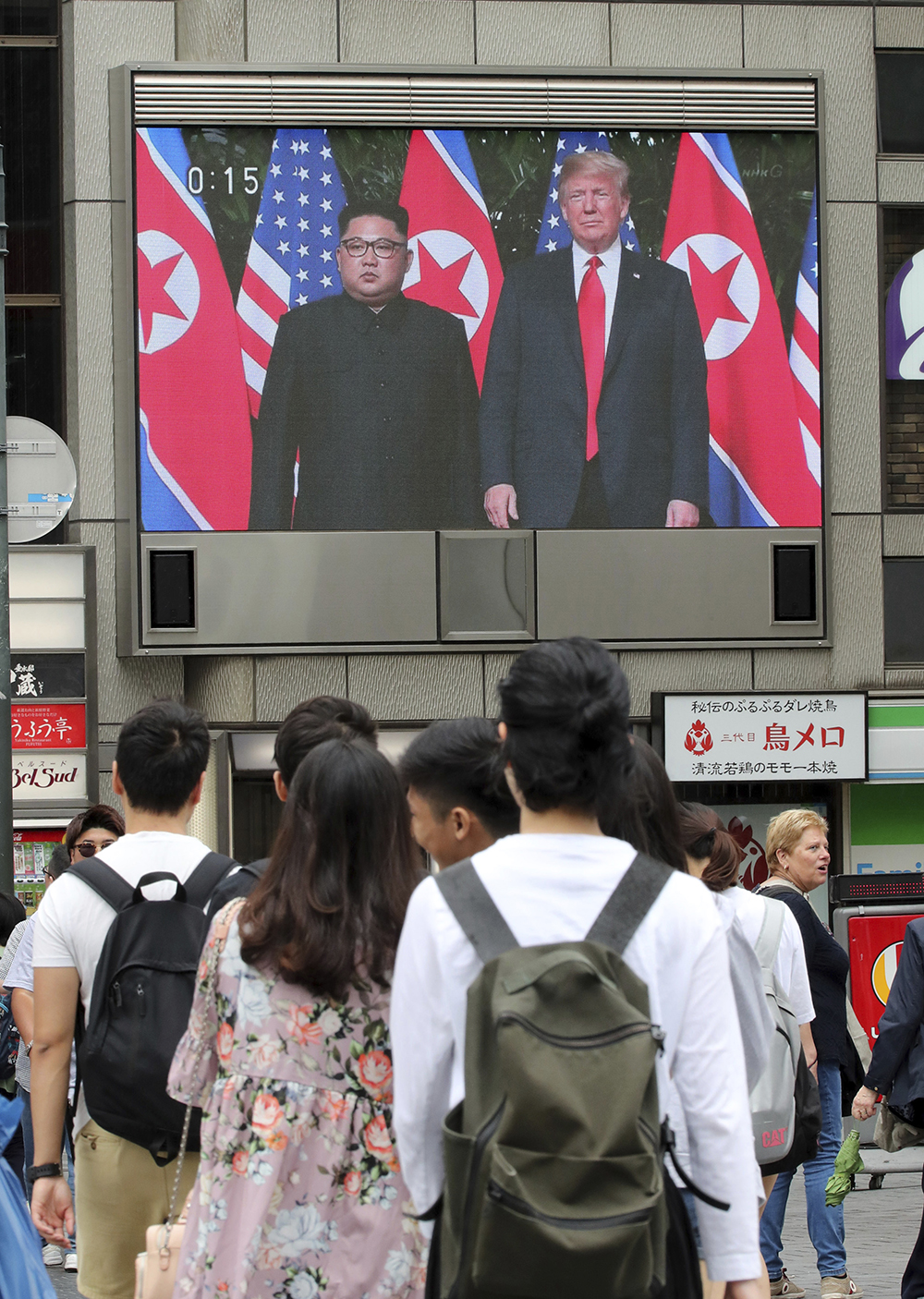
First off, it was announced on June 11th that Trump would leave early from the summit, which was supposedly going to be a somewhat open-ended exercise in marathon diplomacy. The reason for leaving wasn't to pressure the North Koreans to give up more at the negotiating table but 'because negotiations were proceeding faster than expected.' Knowing what we know now of what resulted as a part of those negotiations, it seems as if North Korea wasn't willing to budge and instead of walking out on the summit, the White House took what they could and branded it as some sort of a win, which it wasn't.
The decision to leave earlier also is disappointing as it shows that Trump's 'as long as it takes' negotiating mentality was largely just talk and that he wouldn't be doing much of the negotiating himself. Instead, it seems that whatever could be put on paper would be largely ready in advance of the principals meeting, with the two leaders largely executing a meet and greet session, not hardcore negotiations.
Next, we get to the now famous handshake, where leaders of the two counties came together for the first time in history. American and North Korean flags were arranged side-by-side, which was a startling sight to see in itself. This photo op, one that North Korea had feverishly lusted for above nearly anything else for decades—an ultimate prize of sorts in terms of international optics and internal propaganda— didn't come at the end of the meeting between Kim and Trump, but at the beginning.
This was a monumental misstep or concession on behalf of the White House. That photo was maybe the biggest real-time bargaining chip the U.S. had in its pocket and it was tossed away like it meant nothing. Trump, if he really was going to negotiate with Kim, would and should have used it to improve America's position. If North Korea left without imagery in hand it would have been a major loss on their investment into the summit.
Instead, the leader of the free world stood there, hand-in-hand, flags side-by-side, on equal footing, with the North Korean dictator without getting anything substantial in return. It makes zero sense aside from adding to the evidence that Trump actually negotiated very little with Kim and it was all a social outing more than anything else.
Maybe the strangest part of the whole affair was Trump's constant gushing over Kim and his making huge claims as to the future of the relationship just minutes into the meeting. The endless string of over-the-top platitudes seemed like the same empty automatic rhetoric we see from the President around many world leaders, at first. In this sense, Trump has proven to be a one-trick pony when it comes to one-on-one diplomatic engagements. Kim, on the other hand, said fair less, and what he did say was measured, focused, and broad in context. In essence, Kim appeared to be playing on a totally different level than 'the master negotiator' who was handing out accolades like peppermints.
Being cordial to Kim is understandable, and South Korea's Moon did just that in April, but showering him with compliments and making huge claims about the future of the relationship is totally frivolous, ridiculous, and puts the U.S. in a horrible position. Primarily, that level of instant approval dramatically weakens America's negotiating hand. It also makes us look foolish and like total hypocrites on the world stage. And once again, it piles on the wins for Kim without anything in exchange.
Despite his new international rockstar-like status, Kim is a mass murderer. He runs a military dictatorship with the world's worst human rights record. This appalling reality can be set aside to achieve a solution to a more pressing issue, but there is no need to elevate the man to such a degree publically while you still have no idea how any of this will play out or if his word is even reliable in any way.
It's no secret that President Trump falls in love easily with strongmen and doesn't seem to really care about their dastardly deeds. But not being able to moderate his flow of accolades, even towards a man like Kim, is a major character flaw the president clearly isn't capable of overcoming even when it is so counter-intuitive to achiving a set of objectives.
Above all else, this summit was a missed opportunity. As we have said for years, it was critical that the U.S. come to the table with a fully fleshed-out, 'best shot' international package in hand for a face to face meeting at the highest levels. One that includes major aid and the resources and guarantees from Japan and South Korea, as well as the United States. A deal full of sweet carrots and sour sticks that spells out in clear terms a path forward that will make North Korea a wealthy, stable, and peaceful member of the international community.
Putting this in front of Kim and his aides and saying here it is, this is as good as it is ever going to get, take it or leave it, forces Pyongyang, at the very least, to show its true cards. If they dismiss it, they never had any intentions of denuclearizing, and extreme containment or even military action can be justified as a last option if need be.
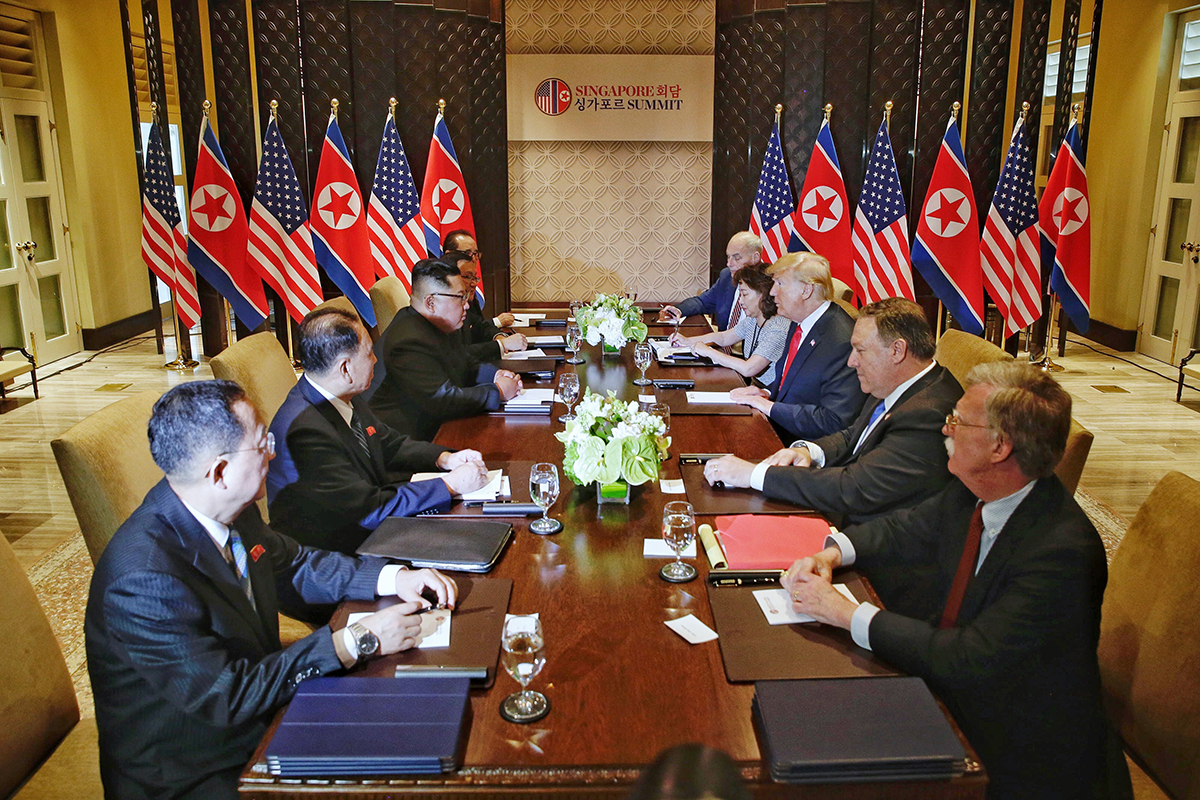
None of this legwork occurred leading up to the summit. In fact, the Trump administration wasn't willing to offer North Korea any aid regardless of what they are willing to do already. Even aid in the form of foodstuffs, like basic grain and rice, to feed the North Korean people, which would be a net positive for the Kim regime and wouldn't exacerbate the threat posed by North Korea if a deal went south, wasn't on the table. Instead, the administration says private investment will help North Korea out sometime in the future, maybe. This, of course, is totally speculative and even under ideal circumstances, it would only happen over a very long period of time.
In essence, minus possible sanction relief and a decreased fear of attack, the U.S. has given North Korea no incentive whatsoever to give up its nuclear arsenal. Considering the only reason they achieved an equal footing with the U.S. is because of their nuclear program, Kim junking it based on some bizarre video, paper assurances, and the hope that foreign dollars may appear someday would be downright reckless. And considering North Korea is a secluded military state, American investment and an injection of foreign culture is likely seen as downright dangerous to the regime's very existence. Keep in mind that North Korean culture has no real concept of individual rights. How this reality would pair with large-scale American business operations in the near term is questionable at best and totally laughable at worst.
Convincing American companies about the long-term viability of working with North Korea, and therefore worth the investment, could be near impossible, as well. North-South shared economic endeavors, chiefly the Kaesong Industrial Park, remain heavily reliant on a positive political climate and routinely come screeching to a halt in times of heightened tensions.
So instead of a comprehensive, best-shot approach to this unprecedented diplomatic opportunity, we got a far less robust exercise that can be best described as "we'll see what happens." Not only does this allow North Korea to take the initiative, but it also results in little insight into what their true intentions are, and thus the can gets kicked down the road even further. In essence, the North Koreans duped Trump and company into what they do best, agreeing to more talk, which has been entirely empty historically speaking.
Even focusing the aims of the summit on far smaller, but more tangible goals, namely agreeing to a plan for a verifiable freeze of North Korea's nuclear and missile programs, not just a vague sentence-long goodwill statement, would have been a far better strategy. By focusing on just one key, albeit less ambitious goal, the U.S. could get a better read on just how realistic getting any meaningful concessions from North Korea is and at least it could possibly result in something truly worthwhile and lasting. Even that would be worth a publicized handshake.
Right now we just have Kim's word that he won't test any more missiles or warheads, but that is not the same as a verifiable freeze, which would be a serious victory for the summit and could lead to real progress on the greater nuclear issues. And just because Kim isn't firing off missiles or detonating warheads doesn't mean his nuclear weapons and delivery system programs aren't moving ahead full-steam, especially in terms of mass production.
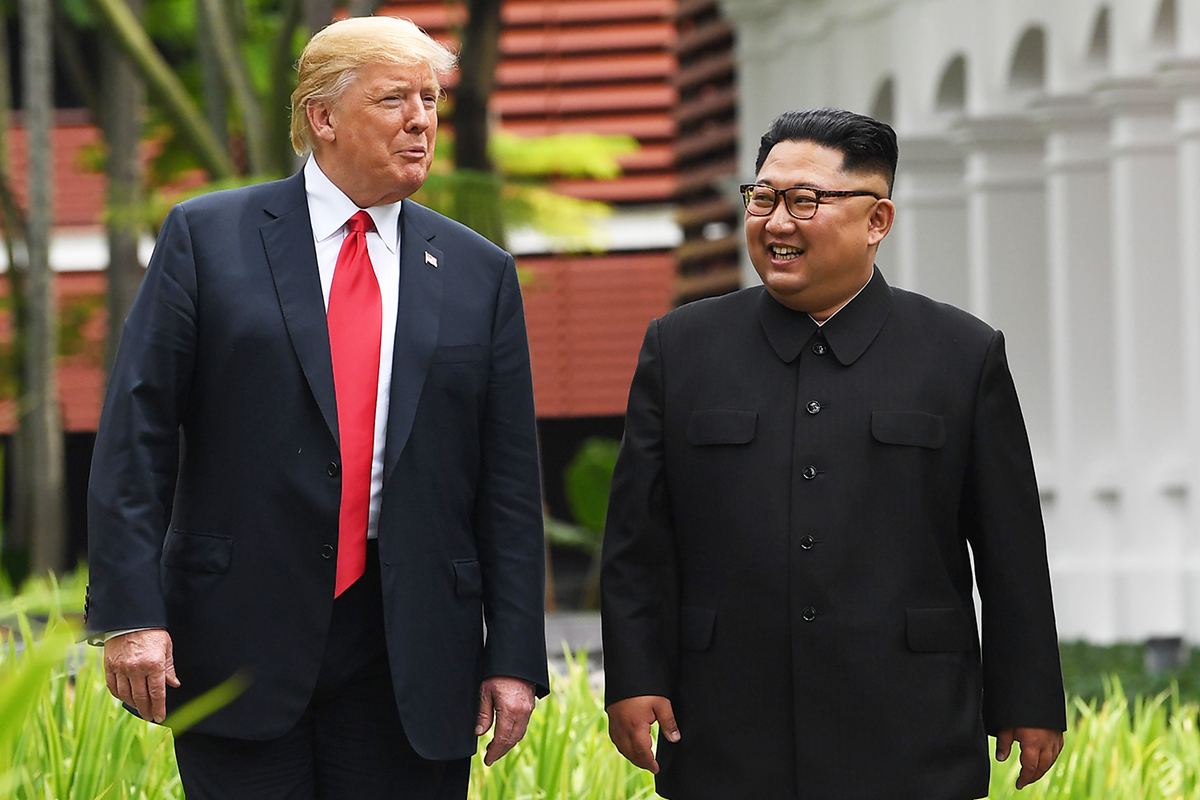
The summit also made clear that Trump still has not learned the details of the issues at play when it comes to nuclear disarmament and North Korea. His press conference and repeated referencing to the hollow joint statement language proves that. He thinks that statement, which uses North Korea's same old language, means the country is 'de-nuking' or he is simply lying about it. It's just embarrassing when anyone who reads a paper or a credible news website knows full well that isn't the case, but the President Of The United States doesn't.
In the end, Trump looked like a flattering stooge that still to this very day hasn't done even the basic homework required to begin to understand such a complicated issue, let alone negotiate in regards to it. The spin the administration is putting out regarding this whole adventure is laughable as well as it totally contradicts their previous stance and statements on the issue.
The 'at least we are not at war' talking point is also a red herring. Although Trump's maximum pressure campaign, namely the international sanctions that went with it, pressured the North Koreans, it's debatable if any of it really impacted Pyongyang's own plans and timelines. Kim clearly achieved what he wanted to with his nuclear and missile programs and showed no signs of stopping until he tested an advanced ICBM and detonated a thermonuclear warhead. At that point, it was North Korea that engaged South Korea in diplomatic warming for the 2018 Olympics and began to drive a wedge between the Blue House and the White House.
The completion of Kim's nuclear deterrent programs proved so effectual that it bought him a one-on-one with the leader of the free world on an equal footing, something only dreamed of by a pre-nuclear North Korea. And they are now in such a strong negotiating position that they basically executed their leader's big unveiling on the world stage, collected their pictures with the President of The United States, and went home without giving up anything of strategic importance. In fact, they got U.S concessions including the ending of joint military drills in South Korea, which are critical to deterring North Korean aggression and maintaining the ability to be able to 'fight tonight' should ROK and U.S. forces be called upon to do so.
In essence, the North Koreans played the United States and Trump's weaknesses like a fiddle.
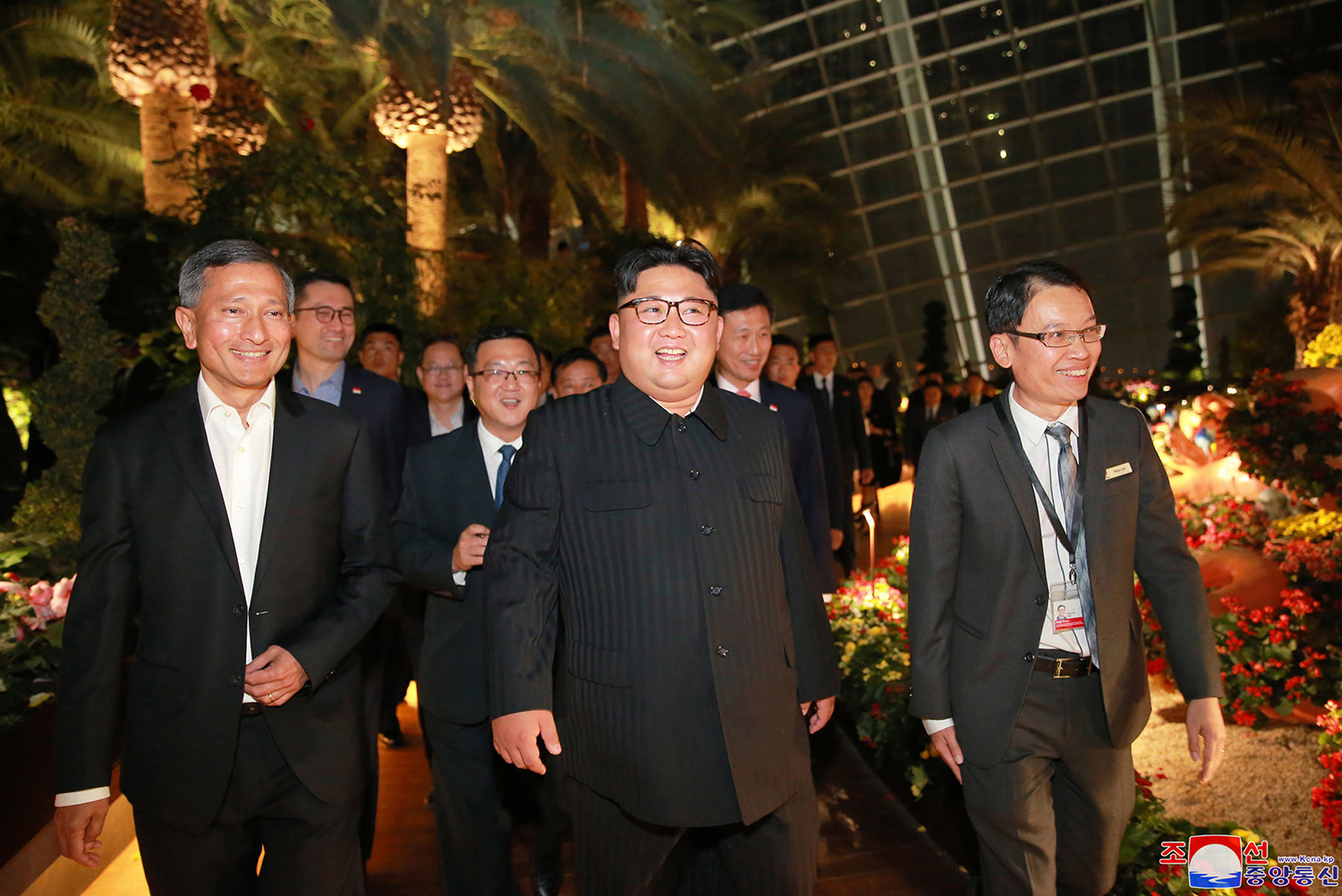
If not being at war is the objective, the United States could just not play the North Korean's games. The U.S. government doesn't have to embrace them on the world stage and sing the praises of their supreme leader. It could simply opt for containment and continue on.
Hey, maybe things will work out! You never know, as we still have no clue what North Korea is actually willing to give up. But it will be very hard to go back to a maximum military pressure campaign now that Trump has admitted that a war on the Peninsula would be unthinkable. His 'crazy man' strategy was metaphorically flushed down the toilet during that disjointed presser.
It's also worth noting that apparently, Trump thinks North Korea is no longer a nuclear threat despite the fact that they have an operational nuclear arsenal and ICBM capability and that entire arsenal remains intact with no plan for denuclearization in place. Yet the Iran deal, which had the most intrusive inspection regime in years, removed nearly all fissile material from the country, and was working even by his own defense secretary's account, wasn't worth keeping in place.
China has been spooked by the possibility of the U.S. becoming closely involved with their junkyard dog of a buffer state in North Korea that they will likely relax sanctions on the country if not end them altogether. Russia is also now involved with North Korea to a much larger degree than before and they very well could back a now internationally acceptable Kim as a counter-balance to U.S. power in the region. If either of these developments come to pass, the sanctions that supposedly tightened the screws on Kim will have little effect. Even a naval blockade would be ineffectual as both countries have long land borders with the reclusive state.
So what are we left with? Hope that Kim Jong Un has a vision for his country that doesn't include nuclear weapons. But considering the fact that those weapons have propelled him and his country to previously unthinkable diplomatic heights and have kept the U.S. at bay, why on earth would he ever give them up?
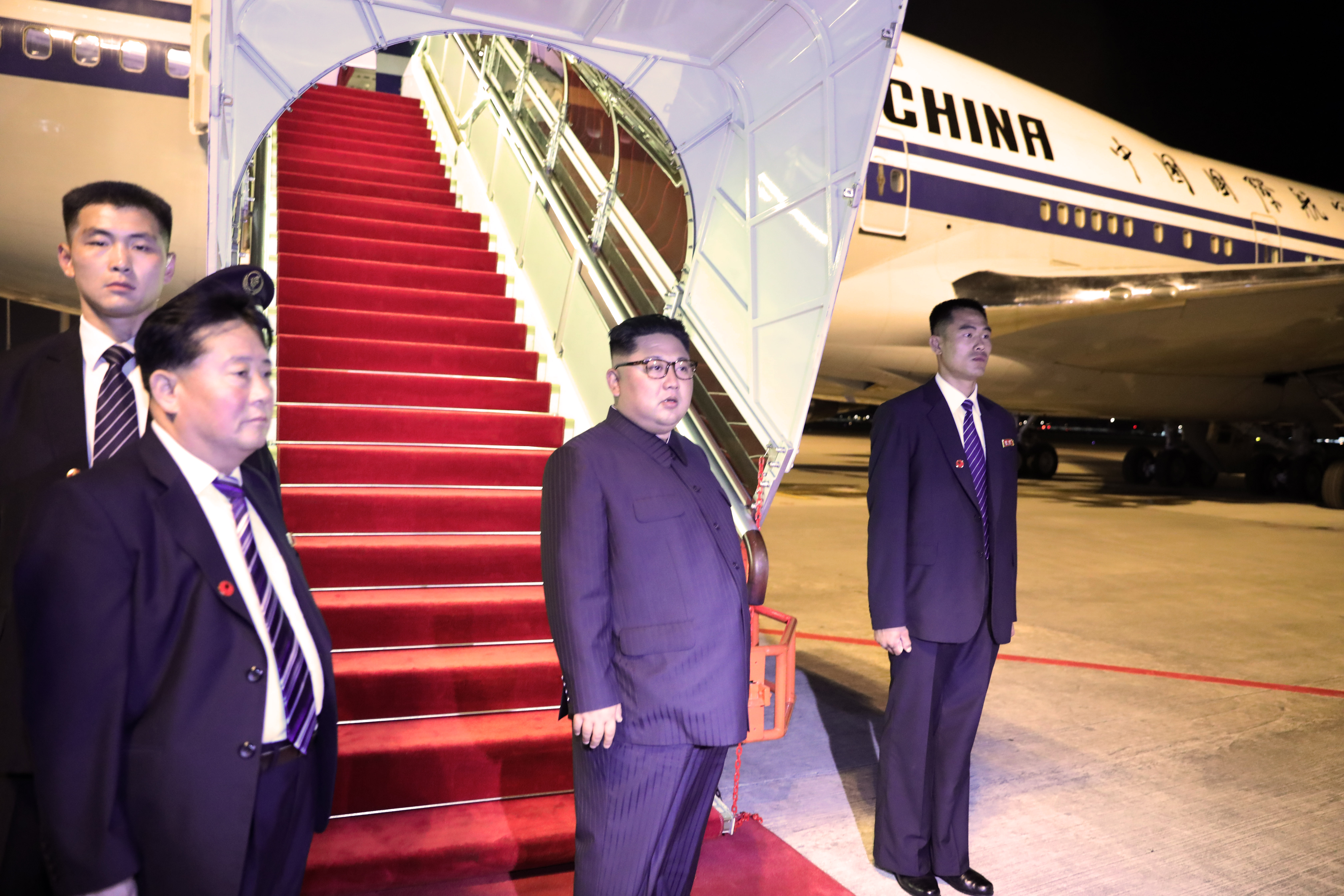
Whatever happens next, it's abundantly clear that North Korea is now firmly in the driver's seat. Amazingly, they have set up a situation for themselves in which they have not only neutered the White House's hard line against them without giving up anything strategic in return, but they have also enticed support from their powerful neighbors like never before and have been legitimized on the world stage in the process.
With all of this in mind, if Kim ever writes a book it should be titled "Playing Dotards: The Art Of Not Making A Deal."
Contact the author: [email protected]
